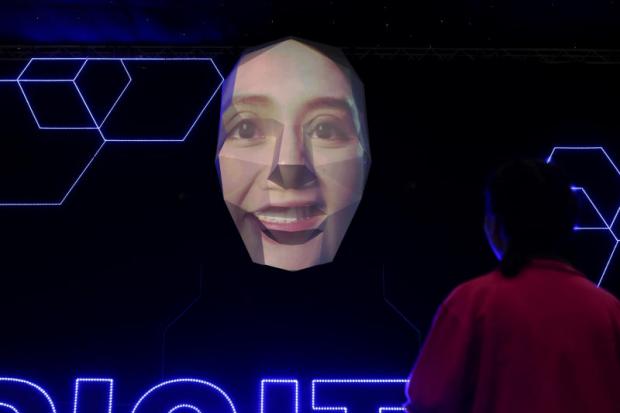
Real-use cases for cloud computing, big data, artificial intelligence (AI) and the Internet of Things (IoT) are taking centre stage at Thailand Digital Big Bang, Southeast Asia's largest technology fair, reflecting Thailand's march to becoming a value-based economy.
Chinawut Chinaprayoon, vice-president of the Digital Economy Promotion Agency (Depa), said Depa has collaborated with Tus-Holdings Co, the builder and operator of Science Park in China, to establish China-Thailand Digital Incubator (CTDI), Thailand's first cross-border startup incubation centre.
CTDI aims to support Thai and Chinese startups in using advanced digital technologies such as big data analytics and AI to speed up their expansion regionally and globally.
CTDI is to be located at the new Depa facility at Lat Phrao junction, scheduled to open at the end of this year. Depa, Tus-Holding and Tus Star are also in discussions to expand this collaboration to develop a startup hub in the Eastern Economic Corridor.
"We will establish a fund to invest in selective startups," said Mr Chinawut.
Herbert Chen, chief operations officer for Tus-Holdings Co, said for the past three decades, commercialisation of research and product development at Science Park contributed to 20% of China's GDP.
30 million baht for IoT
Monsak Socharoentum, interim director for the IoT Institute under Depa, said the Depa Fund offered a 30-million-baht research fund to eight small and medium-sized enterprises (SMEs) under the Thailand IoT Association.
The Depa Fund offers financial support to any research group or startup that can provide an IoT platform running data collection and analysis from multiple agencies.
Depa also issued of terms of reference for a 128-million-baht bid to design four buildings at the IoT Institute in Digital Park, Chon Buri. Depa has already received over 1 billion baht to construct the first building.
At the event, both international and local booths showcased technology adoption in cloud, data analytics, and AI such as facial recognition payment kiosks for shopping, digital analytics to profile customers, and coffee-making robots. Others featured robot greeters, precision farming, smart cities, smart homes, smart security surveillance and facial recognition technology to verify criminals via smart glasses, and the use of AI in farming.
Huawei announced a "public cloud service" -- a local data centre -- as it competes with cloud service providers such as Amazon Cloud Services, Alibaba Cloud and Microsoft Cloud that have data centres outside Thailand.
Get by Go-Jek to open
Korlarp Suwacharangkul, chief of marketing and co-founder of Get, a new ride-hailing service provider invested by Go-Jek, an Indonesia startup, said the company expects to launch a beta service by this October in eight zoning areas.
The full commercial launch is expected by the end of this year using Go-Jek technology, particularly big data analytics, to select the areas with high passenger interest.
Within one year, the company plans to offer at least 3-5 services though Get, including hailing motorbikes, food delivery and messenger service. Go-Jek has added 25 services within 3-4 years.
"We will replicate the success of Go-Jek in hyper-localised service strategies and create a social impact to increase revenues from drivers to least 40% in Thailand. We hope to be a better alternative for users," said Mr Korlarp.
Interested users can register as beta users at Get's booth.
Crystal Widjaja, Go-Jek's senior vice-president for business intelligence and growth, said big data is very important for Go-Jek as it uses that data to find out about users and experiment with new services as well as increase user retention.
Go-Jek has carried 3 million passengers and analyses 100 million data points. The application has 98 million downloads.
The Grab app also demonstrates big data's ability to work with governments in Southeast Asia and academics to help reduce traffic congestion, having invested heavily in machine learning, data science and AI capabilities.
Grab announced a partnership with Tourism Authority of Thailand to launch a community attractions campaign in five provinces, covering 25 community attractions in Bangkok, Pattaya, Phuket, Krabi and Koh Samui in Surat Thani.
- Main report: Government to lead digital drive